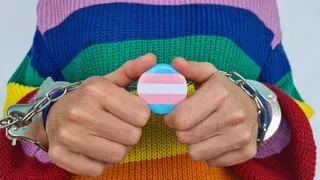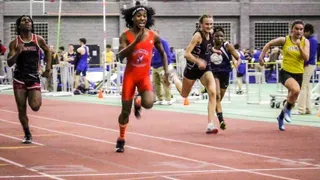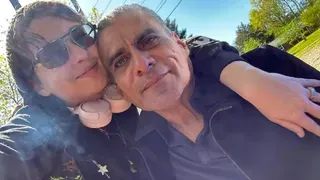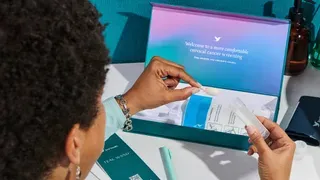March 11, 2010
Census campaign targets tech-savvy Hispanic youth
Kilian Melloy READ TIME: 3 MIN.
Groups pushing for robust Hispanic participation in the 2010 census are enlisting a new corps of foot-soldiers in their battle to reach that hard-to-count demographic: tech-savvy, smart-phone-toting young people.
The "Be Counted, Represent" campaign offers music downloads and a chance at concert tickets to cell phone users who share their e-mail addresses and phone numbers with organizers and forward information about the census to their friends.
Principal organizers Voto Latino and the Mexican American Legal Defense and Educational Fund stress in their messages that undercounted areas risk losing funding for transit, infrastructure and other needs, as well as political representation.
They hope those messages promoting participation in the count will zip throughout the social networks of the young who can persuade reluctant parents to fill out and return their census forms.
"You're looked at by many, many, many people as being powerful when it comes to money that they can line their pockets with," actress Rosario Dawson, a Voto Latino co-founder, told teenagers gathered Wednesday in the library of a predominantly Latino high school. "When it's money that can line your pockets, no one ever says anything. But we're saying something."
The Census Bureau estimates that nearly 3 percent of the country's Hispanic population, or about 1 million people, were not counted in the 2000 census, compared to about 1 percent of the general population.
The campaign seeks to improve those numbers by offering a package of 25 music downloads curated for a young Hispanic audience to cell phone users who share their zip codes, e-mail addresses and cell phone numbers with the program's organizers.
The downloads include songs by such artists as Pitbull, Mos Def and Morrissey. Users can get also get songs by taking census quizzes on a smart phone application that they download.
If they invite their friends to download the application, they're entered into a raffle for tickets to a "secret concert" to be held in the Los Angeles area in April.
Anyone can participate, although the campaign is aimed at teens and 20-somethings.
Alejandro Fernandez, an 18-year-old high school senior who attended the announcement, said he planned to download the census application on his Web-enabled phone and would share it with friends who will spread the word to their parents.
"They'll be exposed to what the census is really about and not be scared," he said.
Voto Latino also screened the first episode of a serial drama starring Dawson and Wilmer Valderrama, who plays a character who resists the census because he wants to stay off the U.S. government's radar and (spoiler alert) is eventually revealed to be in the country illegally.
Organizers said the drama and smart phone campaigns ways to get through to an ethnic group that has been hard for census officials to reach because of indifference, language barriers and - for some - deportation fears.
"It is critically important, very simple and completely confidential to participate in the United States Census," said MALDEF president Thomas A. Saenz said. "Unfortunately, too many in our community are not aware of those three important messages: importance, simplicity and confidentiality."
Harry Pachon, a public policy professor at the University of Southern California's Tomas Rivera Policy Institute, agreed that the extra efforts were needed to get through to the members of a community that is suspicious of the census and largely unaware of its relevance.
He said using the community's abundance of wired youth was an especially canny strategy to drive up participation.
"Young people are sort of an intermediary between the all-English world and the all-Spanish world, so it makes a lot of sense to use the young people as transmitters of information," he said.
Kilian Melloy serves as EDGE Media Network's Associate Arts Editor and Staff Contributor. His professional memberships include the National Lesbian & Gay Journalists Association, the Boston Online Film Critics Association, The Gay and Lesbian Entertainment Critics Association, and the Boston Theater Critics Association's Elliot Norton Awards Committee.







